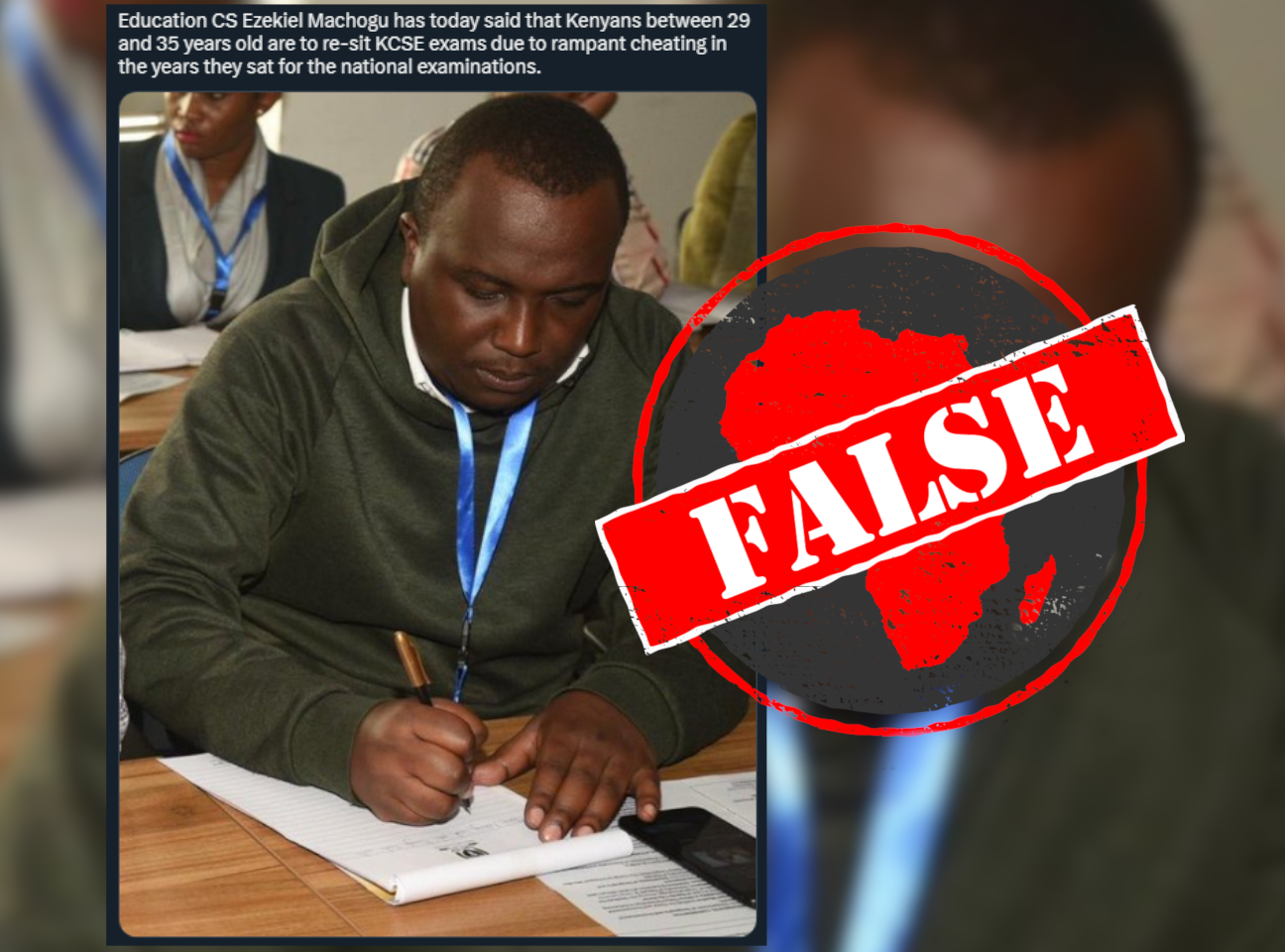IN SUMMARY: While there have been concerns about cheating in exams, a claim that Kenyans who sat for a secondary school leaving exam years ago would be forced to retake it comes from a fake social media account.
Did Kenya's education minister, Ezekiel Machogu, say those aged 29 to 35 would resit their Kenya Certificate of Secondary Exams (KCSE) because of cheating?
That’s the claim in a Twitter post making the rounds online. It seems to have been published by the widely read Nation news site and reads: “Education CS Ezekiel Machogu has today said that Kenyans between 29 and 35 years old are to re-sit KCSE exams due to rampant cheating in the years they sat for the national examinations.”
The post includes a photo of an adult man writing on a piece of paper.
The KCSE is offered at the end of four years of secondary education and is needed to study at the country's universities.
The claim appears to be linked to recent concerns about cheating in exams and has also been posted on Facebook here, here and here.
But is it true?

Ignore fake Twitter account
The account that published the claim is unverified and has only 229 followers. It uses the username “Nation Breaking News” and the handle “@NationAfricKE”.
The official Nation Breaking News is verified and has 1.7 million followers. We couldn’t find any mention of the announcement of a resit of the secondary school exams for adult Kenyans on the official Nation account.
On 9 May 2023, the Nation posted a screenshot of the tweet on its official Facebook page, with the word “FAKE” stamped on it.
“FAKE NEWS ALERT! Please be advised that this post doing rounds on social media is fake. The Twitter handle NationAfrcKe is also fake. Follow https://twitter.com/NationBreaking to get verified alerts. #FakeNewsAlert ,” Nation wrote.
Fake social media accounts claiming to belong to major news agencies could lower public trust in the media and often post content that could be harmful. You can report fake accounts here and here.
Republish our content for free
For publishers: what to do if your post is rated false
A fact-checker has rated your Facebook or Instagram post as “false”, “altered”, “partly false” or “missing context”. This could have serious consequences. What do you do?
Click on our guide for the steps you should follow.
Publishers guideAfrica Check teams up with Facebook
Africa Check is a partner in Meta's third-party fact-checking programme to help stop the spread of false information on social media.
The content we rate as “false” will be downgraded on Facebook and Instagram. This means fewer people will see it.
You can also help identify false information on Facebook. This guide explains how.


Add new comment